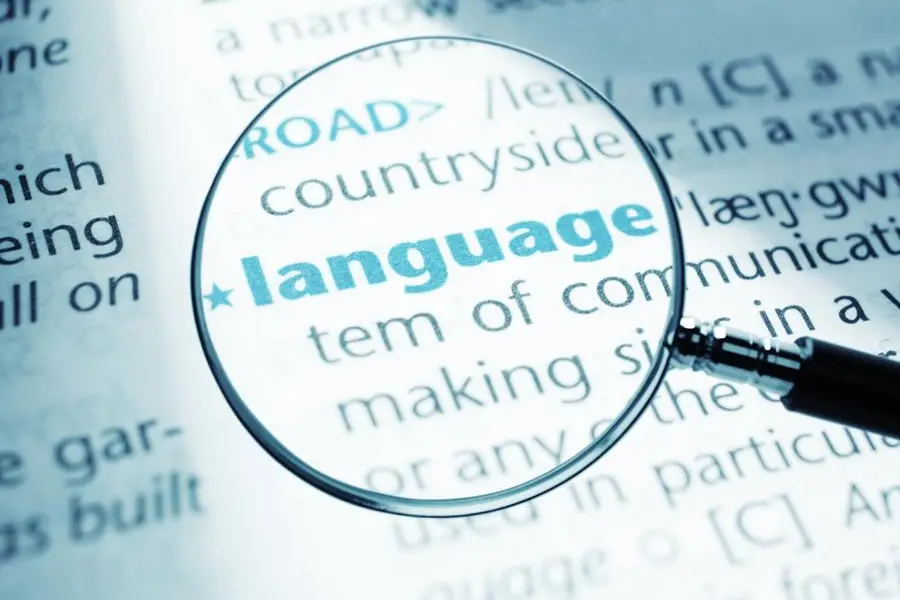PHOTO
If one were to meet someone who doesn’t speak a word of English, then what is the one “English” word that most of them probably do know? Almost certainly, it’s OK.
The folks at the Merriam-Webster dictionaries speculate that “OK” is “very probably the most widely recognised word in the world”. And as they tell us, the funny thing about the etymology of the word ‘OK’ is that its origin is “literally a joke”.
According to two people who have researched the word — yes, it took two scholars of eminence to study how this two-letter word came about — the term was invented in the United States (where else?) in an 1839 article in the Boston Morning Post. According to research by the historian Allen Walker Read, as reflected in the 2010 book OK: The Improbable Story of America’s Greatest Word, by professor Allan Metcalf, the word’s roots originate in a bit of jocular text — a suggestion by a Boston newspaper to their counterparts in Providence, Rhode Island, to sponsor “a party for some boisterous Boston lads who might be stopping by”. This jokey text, borrowing from the prevailing fashion of deliberate misspellings (coupled with the newer fashion of abbreviating popular phrases to acronyms) rendered “all correct” as “oll korekt” — and summarised it as “OK”.
Before you wonder how such a trivial joke caught on, it’s important to understand that both the craze for abbreviations and for misspellings were the newspaper equivalent in those days of the trivialities that “go viral” on social media nowadays. Deliberate misspellings (like “kewl” and “rite” so beloved of adolescents today) also had their equivalents then, turning no go into know go and no use into know yuse — which when abbreviated, as the abbreviation fad required, made no go into “K.G.” and turned know yuse into “K.Y.”. In the same way, the expression all right was deliberately misspelled as oll wright and became O.W., as an abbreviation. And all correct became oll korekt — hence o.k.!
Here’s where the plot thickens, according to Prof Metcalf. OK did become one of the more commonly used expressions, but it’s fair to point out that since all the other abbreviations cited above have passed into oblivion, how come OK survived and achieved global glory? The answer apparently lies in the US presidential election of 1840, when President Martin Van Buren was nicknamed “Old Kinderhook” after his hometown of Kinderhook, New York. As a result, Van Buren fans organised themselves into “OK Clubs” across the country, further popularising the word. Merriam Webster tells us that as a result, many wrongly attribute the origin of the word to “Old Kinderhook”, when it really should be credited to the jocular Bostonian editor who came up with “oll korekt”. But the double-meaning that Van Bruen was both “OK” (by nickname) and OK (because he was right for the country) entrenched the term in the American consciousness, and from there, it was not an enormous leap to its global spread.
Prof. Metcalf dismisses all the other “origin stories”, but details many of them, including alleged sources in various other languages, notably Latin, Greek, Scottish, French, Finnish, and Anglo-Saxon via Swedish, with two African languages, Mandingo and Wolof, also being credited. The most creative story claimed it was one more thing that the white Americans looted from the Natives they had displaced in America. According to this theory, OK was a contraction of the Choctaw word okeh, which President Andrew Jackson allegedly stole (along with much of their land) from members of the Choctaw tribe. This theory was taken so seriously that President Woodrow Wilson, a former head of Princeton University before ascending to the nation’s highest office, reportedly wrote okeh on papers he approved. When asked why he did not use O.K., he replied, like stern professor he used to be, “Because it is wrong”.
Unfortunately for him, it was he who was wrong. O.K. was the real original. Which means that spelling O.K. as okay is also, strictly speaking, “wrong”, though writing OK (without the old-fashioned full stops in between) and even choosing the lowercase ok are also acceptable, and indeed more popular. OK?
Copyright © 2022 Khaleej Times. All Rights Reserved. Provided by SyndiGate Media Inc. (Syndigate.info).





















